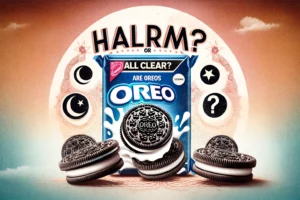Is Peanut Butter Halal Or Haram?
Peanut butter, as a food item, generally falls into the category of halal, which means permissible in Islam. Let’s break down why this is the case:
Is Peanut Butter Halal Or Haram?
- Basic Ingredients: The primary ingredient in peanut butter is peanuts, which are naturally halal. Peanuts, like other nuts and legumes, are permissible to eat in Islam as long as they are prepared and consumed in a lawful manner.
- Processing and Additives: The halal status of peanut butter can be influenced by the processing methods and additives used. Most commercial peanut butters contain additional ingredients like salt, sweeteners, and oils. These ingredients are typically halal, but it’s always good to check for any unusual additives that might not be permissible.
- Cross-Contamination Concerns: In some cases, the halal status of peanut butter could be questioned if it’s processed in facilities that also handle haram (forbidden) products, like pork or alcohol. Cross-contamination could potentially render it haram. However, this is more of an exception than the rule.
- Certification: To ensure peanut butter is halal, many Muslims look for halal certification on the packaging. This certification means that the product has been inspected and approved by a credible Islamic authority, confirming its adherence to halal standards.
- Homemade Peanut Butter: Making peanut butter at home is a straightforward way to ensure its halal status. By using raw peanuts and other halal ingredients, one can avoid any concerns about processing and additives.
Ingredients to Watch Out For:
While peanut butter is generally halal, as it’s plant-based, there can be concerns about certain additives. For instance:
- Emulsifiers: Some peanut butters contain emulsifiers to prevent oil separation. These can be derived from animal sources, and if the animal was not slaughtered according to Islamic law, this could render the peanut butter haram.
- Sweeteners and Flavorings: Artificial sweeteners or flavorings need to be checked for their source. If they contain alcohol or are derived from haram sources, they could affect the halal status.
Halal Certification:
Many manufacturers now seek halal certification for their products, including peanut butter. This certification is provided by recognized Islamic organizations and ensures that the product meets all the requirements of halal compliance.
Conclusion
In summary, peanut butter is generally considered halal in Islam. The key factors that could affect its halal status are the additional ingredients, processing methods, and potential cross-contamination with haram substances. When in doubt, seeking products with halal certification or opting to make peanut butter at home are reliable ways to ensure compliance with Islamic dietary laws.





